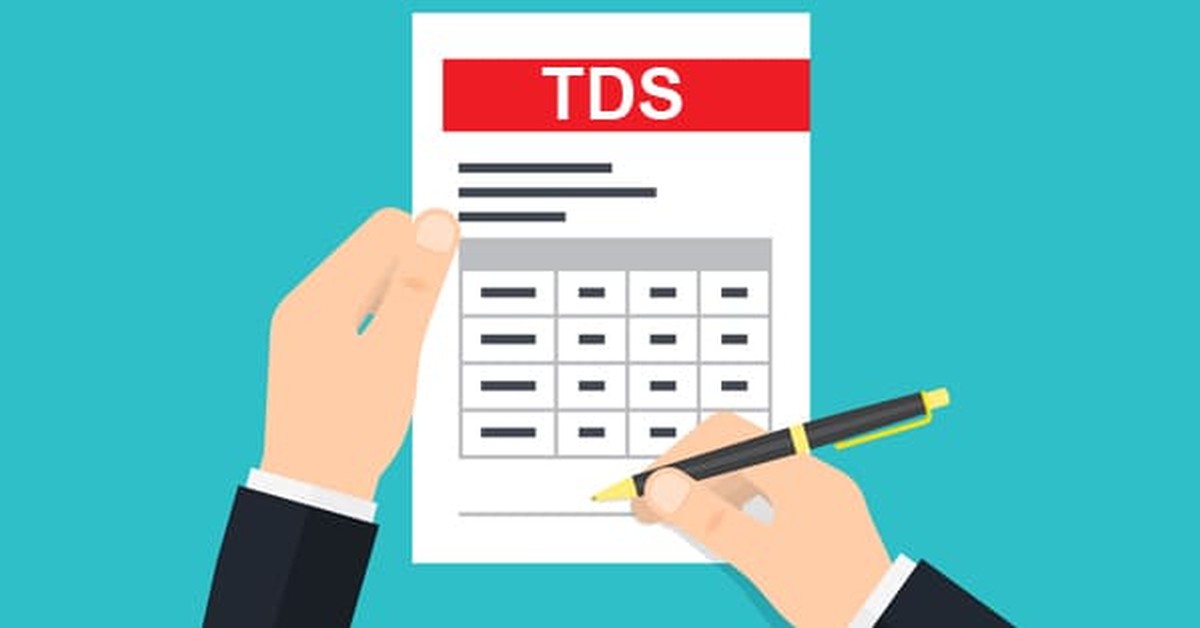Tax reforms often sound complicated, but the latest TDS (Tax Deducted at Source) changes announced in Budget 2025 are a breath of fresh air for common taxpayers. Whether you're a senior citizen relying on deposit interest, a salaried employee with small savings, or even a professional earning commission, these new rules will put more money back in your hands. The best part? They officially take effect from September 25, 2025.
Let's break down what these reforms mean and why they are such a big deal.

What is TDS and Why Does it Matter?
Think of TDS as a "pay-as-you-earn" tax system. Whenever you receive income-be it salary, FD interest, or dividends-the payer deducts a certain percentage upfront and deposits it with the government.
For example, if you earn interest from an FD, the bank deducts TDS once it crosses a set threshold. While this ensures steady tax collection for the government, it often leaves taxpayers struggling with refunds later-especially when their total income is below the taxable limit.
The Problem with Old TDS Rules
Until now, the thresholds for TDS deductions were quite low. This caused frequent deductions even for people with small incomes. Taxpayers then had to file returns just to claim refunds, which not only locked up their money but also created unnecessary paperwork.
This issue was particularly harsh for senior citizens and middle-class families, who depend on savings for day-to-day expenses.
New TDS Rules Effective from September 25, 2025
Starting September 25, 2025, the new TDS rules kick in. These changes aim to:
- Reduce tax burden on small investors
- Improve liquidity for individuals
- Simplify tax compliance
- Encourage savings and investments
Now, let's dive into the specific reforms.
TDS Relief for Senior Citizens
Earlier, banks deducted TDS if a senior citizen's annual interest income exceeded Rs 50,000.
Under the new rules:
- The exemption limit is doubled to Rs 1,00,000.
- No TDS will be deducted unless the annual deposit interest crosses this amount.
For example, if a retired individual earns Rs 80,000 from deposits, banks won't deduct TDS anymore. Previously, even after earning just above Rs 50,000, deductions would kick in.
This reform is a huge relief for retirees who rely heavily on deposit interest.
TDS Relief for Non-Senior Citizens
The exemption threshold for non-senior citizens has also gone up:
- Old limit: Rs 40,000
- New limit: Rs 50,000
This change benefits middle-class families and salaried individuals who invest in FDs, RDs, and small savings schemes. It ensures fewer deductions and more money in hand throughout the year.
Simplification of TDS on Lottery Winnings
The old rule taxed total yearly winnings above Rs 10,000.
Now, TDS applies only when a single winning exceeds Rs 10,000.
For instance:
- Winning Rs 5,000 + Rs 7,000 separately = No TDS
- Winning Rs 15,000 in one go = TDS applies
This eliminates confusion and ensures that small lottery wins don't attract unnecessary deductions.
TDS Changes for Insurance Commission
Insurance agents often faced TDS once the annual commission crossed Rs 15,000.
Under the new rule, the threshold is increased to Rs 20,000.
This helps smaller agents and part-time earners who make modest commissions. More importantly, it improves their liquidity and reduces the burden of claiming refunds.
TDS Changes on Dividend Income
Dividend income from shares and mutual funds was earlier subject to TDS if it crossed Rs 5,000.
Now, the threshold is raised to Rs 10,000.
This is great news for small investors, as it encourages more participation in capital markets without constant deductions on minor dividend earnings.
Impact on Fixed Deposits and Recurring Deposits
The biggest winners of these reforms are FD and RD investors. With higher exemption limits, banks will deduct less tax upfront.
That means:
- More interest income stays with you during the year
- Fewer refund claims during tax filing
- Improved cash flow for families and retirees
Why These Reforms are Important for Liquidity
Liquidity simply means having money available when you need it. The new TDS rules ensure you're not left waiting months for a refund. Instead, your earnings remain in your hands, helping you cover expenses smoothly.
Encouragement of Savings and Investments
By reducing unnecessary deductions, the government is encouraging people to invest in safe instruments like FDs, RDs, mutual funds, and insurance products.
This not only benefits individuals but also strengthens India's financial ecosystem.
Relief Measures Tailored for Senior Citizens
Senior citizens often face the dual challenge of limited income and high medical expenses. By doubling their exemption limit, the government has shown empathy and support for retirees.
This move goes beyond financial relief-it provides peace of mind.
Simplification and Transparency in Taxation
Complex tax rules often discourage people from investing. With simplified and clearer TDS provisions, taxpayers can now enjoy a hassle-free experience.
Overall Impact of TDS Reforms in 2025
Here's what these reforms bring:
- Reduced compliance burden
- Better liquidity
- Encouragement of small savings
- Relief for senior citizens
- Simpler taxation for all
Conclusion
The TDS reforms in Budget 2025 are more than just technical updates-they are a step towards a fairer, simpler, and more taxpayer-friendly system. By increasing thresholds across various categories, the government has ensured that small incomes are no longer unfairly taxed at the source.
From September 25, 2025, senior citizens, salaried employees, small investors, and insurance professionals will all benefit from these reforms. In essence, these changes strike the right balance between government revenue collection and taxpayer convenience.
FAQs
1. What is the new TDS exemption limit for senior citizens?
Senior citizens can now earn up to Rs 1,00,000 in annual interest income without facing TDS deductions.
2. How do the new TDS rules benefit FD holders?
FD investors will see fewer deductions at source, meaning more cash flow and fewer refund claims.
3. What are the changes in lottery winnings taxation?
TDS will apply only when a single lottery win exceeds Rs 10,000, not on the total annual winnings.
4. Will insurance agents benefit from new TDS rules?
Yes, the exemption threshold for insurance commission has been raised to Rs 20,000, helping small agents.
5. When will these TDS changes come into effect?
The new rules will officially apply from September 25, 2025.








 CAclubindia
CAclubindia
